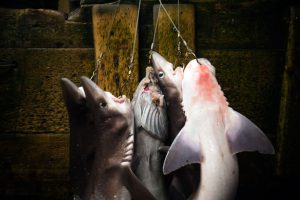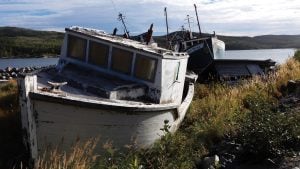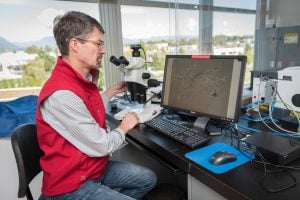
Wildlife
The great green shark hunt
Can British Columbia’s spiny dogfish make the grade as the world’s first “sustainable” shark fishery?
- 3319 words
- 14 minutes
This article is over 5 years old and may contain outdated information.
Science & Tech

Every minute, the equivalent of one garbage truck full of plastic waste leaks into the world’s oceans. By 2050, that’s expected to increase to four trucks per minute, or more than 30 million tonnes each year — at which point plastic will outweigh all of the fish in the oceans.
These startling statistics appear in the World Economic Forum’s new major report, The New Plastics Economy: Rethinking the future of plastics. The report recognizes that plastics are essential to the world’s economy, but calls for systemic changes to how we deal with the materials.
Oceans are not the only natural systems threatened by the intrusion of plastic packaging, bags, bottles, cigarette lighters and other refuse, but they may merit the most attention. A 2015 study by scientists from the U.K. and Australia and published in the science journal PNAS concluded that about 90 per cent of all seabirds have eaten plastic and are likely to retain it in their guts.
Meanwhile, the Vancouver Aquarium is finding more and more evidence of the profoundly negative effects of “secondary microplastics,” aka the tiny plastic particles that are made when products have been broken down over time.
“Secondary microplastics are actually one of the big challenges facing the world today,” says Peter Ross, director of the Vancouver Aquarium’s Ocean Pollution Research Program. “We’ve seen an explosion of reports documenting the pervasive spread of these plastics throughout the world’s oceans — into the far Arctic, into the deepest parts of the oceans and the most remote environments.”
It’s extremely difficult, he explains, to determine where the plastics are coming from, how they’re moving through the environment and how they might be taken up by sea life.
“Most of our efforts to clean up the ocean and our shorelines are cosmetic efforts, and when we talk about microplastics, it’s pretty much impossible to clean them up,” says Ross.
One of the aquarium’s recent studies showed that a smolt (baby salmon) in B.C.’s Strait of Georgia ingests between one and nine plastic particles per day, while a returning adult salmon might consume as much as 90 pieces in a day.
The problem with plastics is in the manufacturing, collection and reuse cycle. Ross says the average Canadian purchases and uses more than four times her or his own body weight in plastic every year. And despite regional efforts to recycle, says the WEF report, more than 90 per cent of plastics are still produced from finite supplies of oil and gas, and account for six per cent of global oil consumption.
But there’s hope, says the report. The WEF suggests countries work together to establish a “Global Plastics Protocol” and coordinate large-scale recycling projects rather than continue to rely on small-scale initiatives and incremental improvements.
Whatever steps are taken to enact such international protocols, it’s clear that changes must be made to the way plastics are produced, used and disposed of.
Recycled plastic
Only 14 per cent of plastic packaging is recycled, with 32 per cent escaping any collection process and ending up in natural and urban environments. By comparison, 58 per cent of paper is recycled, and up to 90 per cent of iron and steel.
Are you passionate about Canadian geography?
You can support Canadian Geographic in 3 ways:

Wildlife
Can British Columbia’s spiny dogfish make the grade as the world’s first “sustainable” shark fishery?

History
From their beginnings in the late 19th century, salmon hatcheries have gone from cure to band-aid to crutch. Now, we can’t live without manufactured fish.

People & Culture
A moratorium on cod fishing that was supposed to last two years has now lasted 30. What will it take to rebuild cod stocks — and a way of life?

Environment
Scientist Peter Ross uses all the high-tech tools of a crime scene investigator — except his crime scene is the open ocean